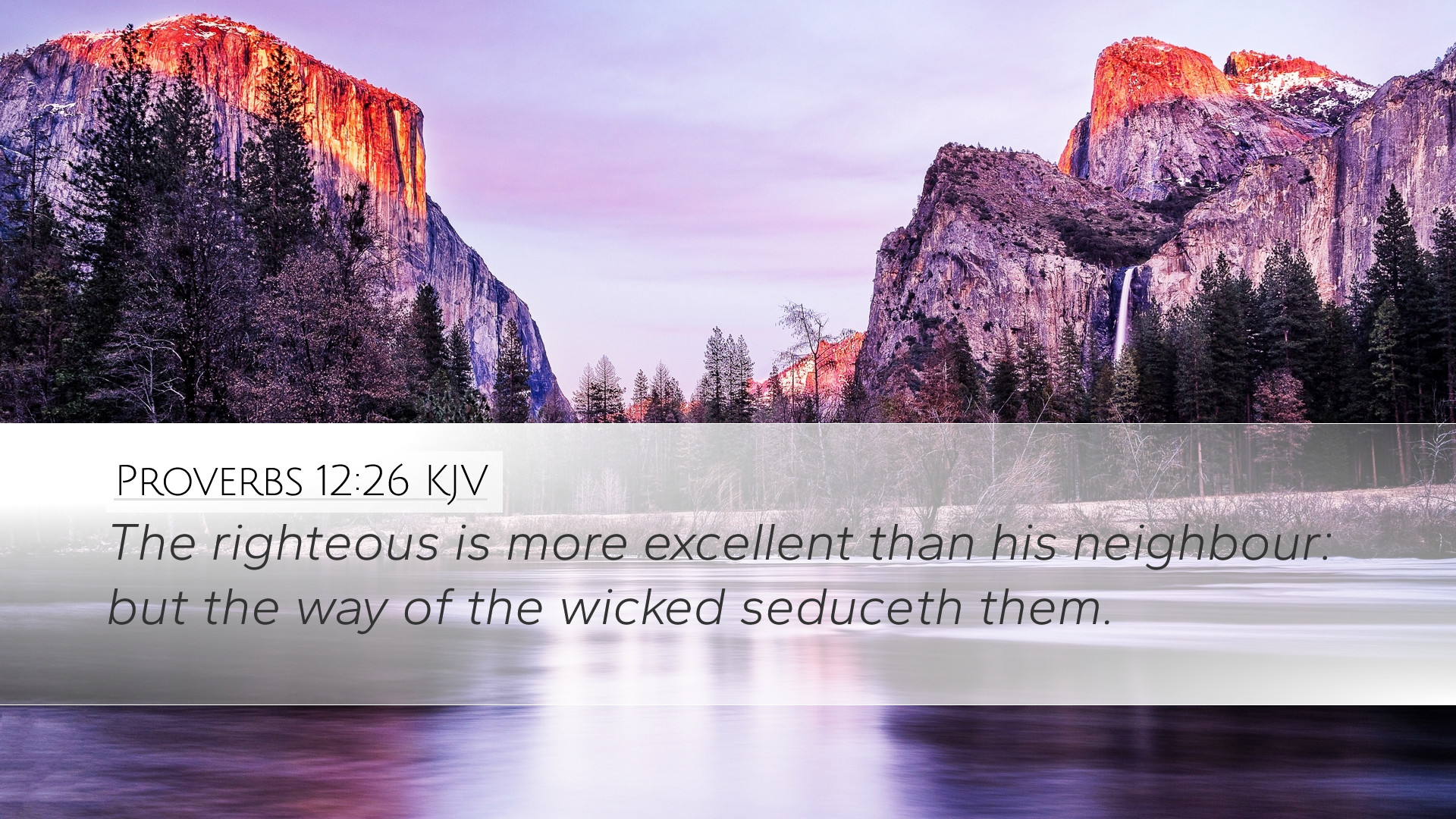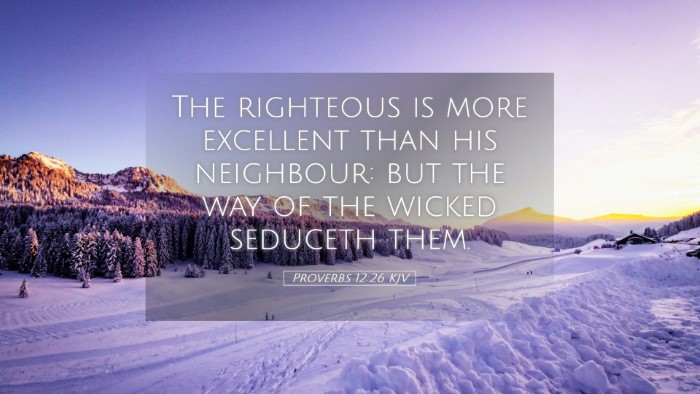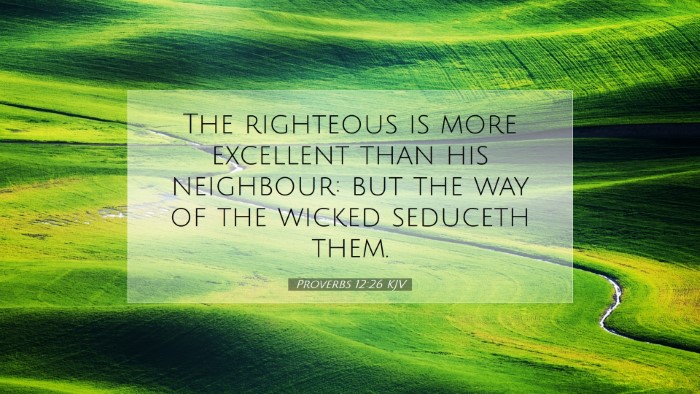Commentary on Proverbs 12:26
Proverbs 12:26 states, "The righteous is more excellent than his neighbour: but the way of the wicked seduceth them." This verse provides a contrast between the lives and choices of the righteous and the wicked. An examination of this verse through various public domain commentaries reveals profound insights intended for pastors, students, theologians, and Bible scholars.
Overview of the Verse
The proverb reflects on the nature of righteousness and wickedness, emphasizing the moral superiority of the righteous over their neighbors while warning of the seductive nature of the ways of the wicked. It encapsulates the generational themes of wisdom and folly prevalent throughout the Book of Proverbs.
Insights from Matthew Henry
Matthew Henry notes that the righteousness of a person elevates them in moral standing and virtue. The comparison to neighbors highlights that even in a community of seemingly good individuals, the righteous stand out as particularly excellent. He emphasizes that the righteous are wise and prudent in their dealings, leading to favorable outcomes.
- Righteousness and Influence: Henry argues that the righteous impact those around them positively, leading others toward a path that reflects God's will.
- Wickedness as Seduction: He warns that the wicked often have a persuasive and deceptive nature, which can lead even the righteous astray if caution is not exercised.
Thoughts from Albert Barnes
Albert Barnes elaborates on the concept of "more excellent," asserting that righteousness produces inherent goodness and superior character. He indicates that this superiority could manifest in various contexts, affecting social interactions, personal integrity, and spiritual standing.
- Comparative Analysis: Barnes discusses how comparing the righteous to their neighbors serves as an encouragement for believers to pursue righteousness actively.
- Wickedness and Deception: He further explicates the idea that the wicked not only stray from righteousness but also lead others down a dark path through their charm and deceitful ways.
Reflections from Adam Clarke
Adam Clarke provides a more nuanced examination of the phrase "seduceth them." He suggests that the word implies a drawing away from the path of righteousness into ways that ultimately lead to destruction.
- The Fate of the Righteous: Clarke underscores that while the righteous may face challenges, their path is illuminated by wisdom, leading to an eventual triumph over adversity.
- The Danger of Influence: He warns about the allure of wickedness; those who indulge in wickedness might appear successful or attractive, thus seducing others to compromise their values.
The Righteous: Characteristics and Influence
The righteous are portrayed throughout Scripture as individuals who embody virtue, integrity, and a pursuit of God’s ways. Their characteristics include:
- A Spirit of Integrity: They conduct themselves with transparency and honesty.
- Wisdom and Discernment: They make decisions grounded in the fear of the Lord, leading to wise outcomes.
- Compassion and Kindness: Their actions toward others reflect a love that is rooted in justice.
Such characteristics make them not only exemplary but also influential, operating as beacons of light in a world often surrounded by moral darkness.
The Wicked: The Nature of Seduction
Contrarily, the ways of the wicked are characterized by:
- Deception: Wielding charm and charisma, they often lead others astray without overt aggression.
- Temptation: They present alluring choices that appear beneficial but lead to spiritual demise.
- Dishonor: Their actions lack the foundation of integrity, often resulting in chaos and destruction.
Understanding this dynamic helps believers discern between the paths laid before them and the influence they may yield on others.
Practical Applications for Believers
Pastors, students, and scholars may draw several practical applications from Proverbs 12:26:
- Pursuit of Righteousness: Believers should strive for a righteous lifestyle, understanding its value and excellence in God’s kingdom.
- Vigilance Against Seduction: It is imperative to remain vigilant against the charm of the wicked, constantly seeking divine wisdom to resist temptation.
- Impact on Community: As representatives of righteousness, individuals should seek to be examples within their communities, exhibiting traits that draw others toward God.
Conclusion
Proverbs 12:26 serves as a powerful reminder of the stark contrast between the righteous and the wicked. Through insights from esteemed commentators like Matthew Henry, Albert Barnes, and Adam Clarke, we find a wealth of understanding about living a life of righteousness amidst moral challenges. This verse not only encourages personal integrity and ethical living but also serves as a call to be aware of the seductive nature of wickedness that seeks to draw individuals away from the path of light.


